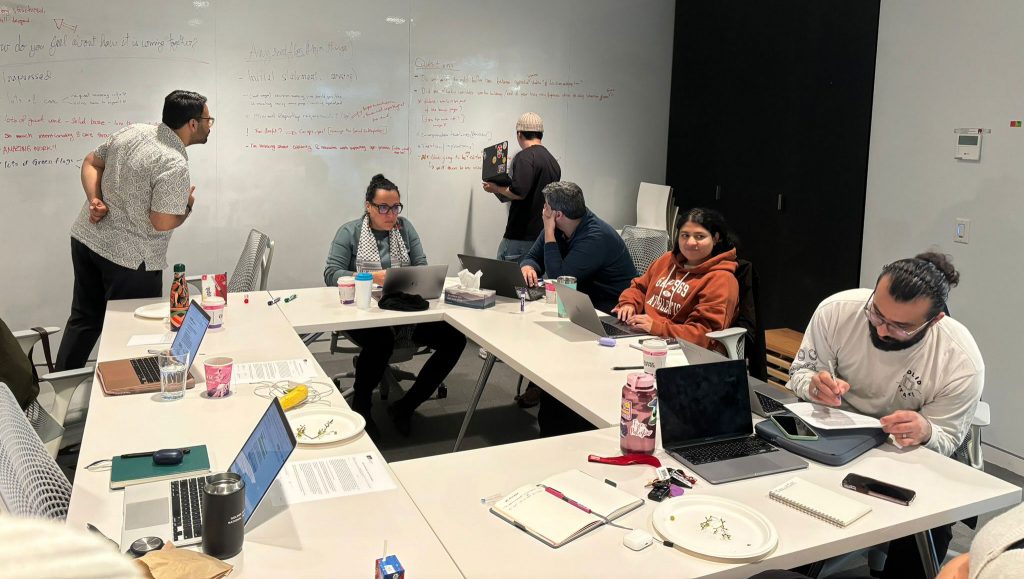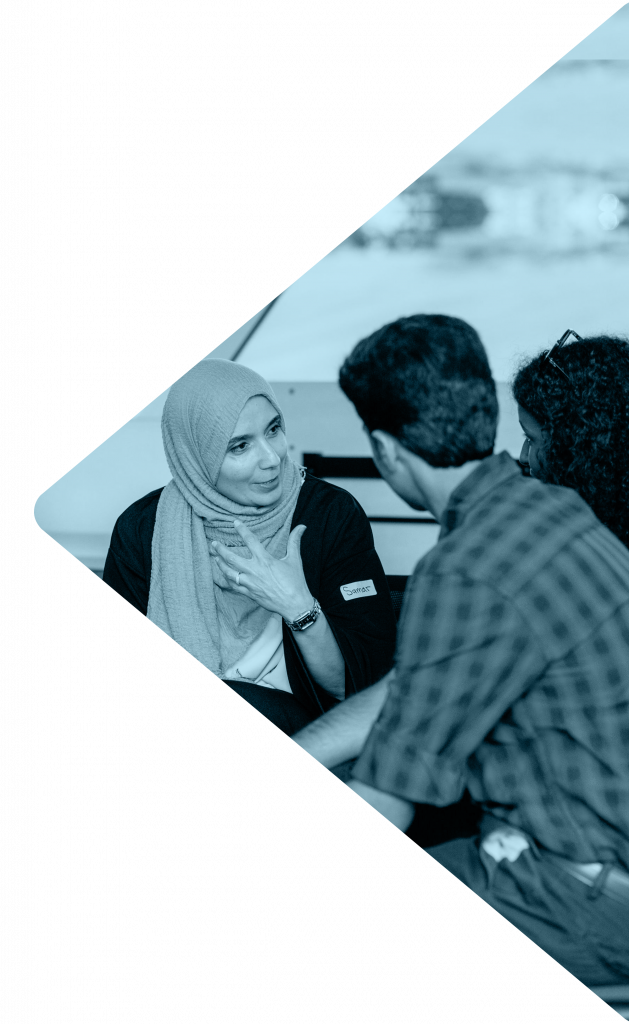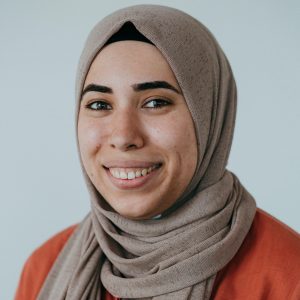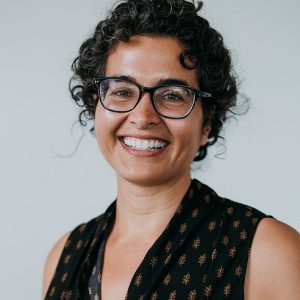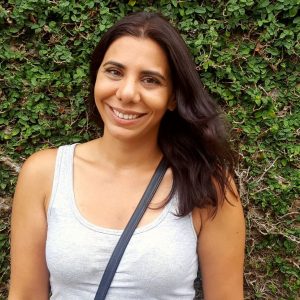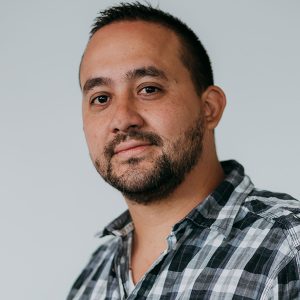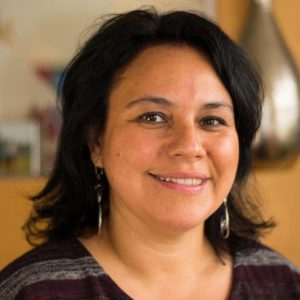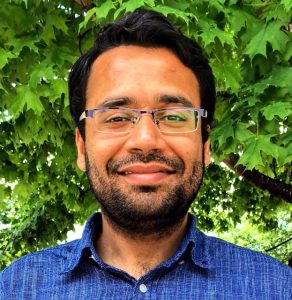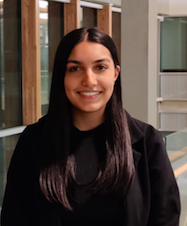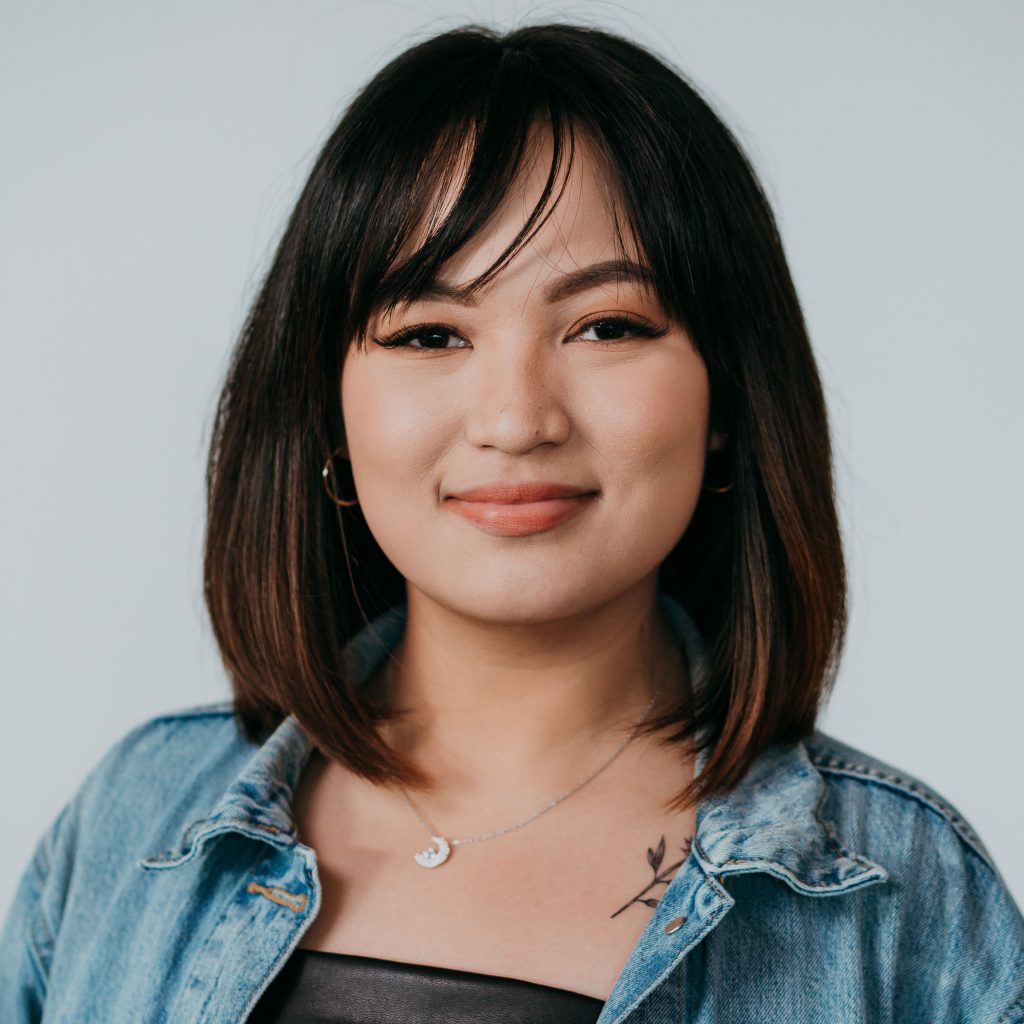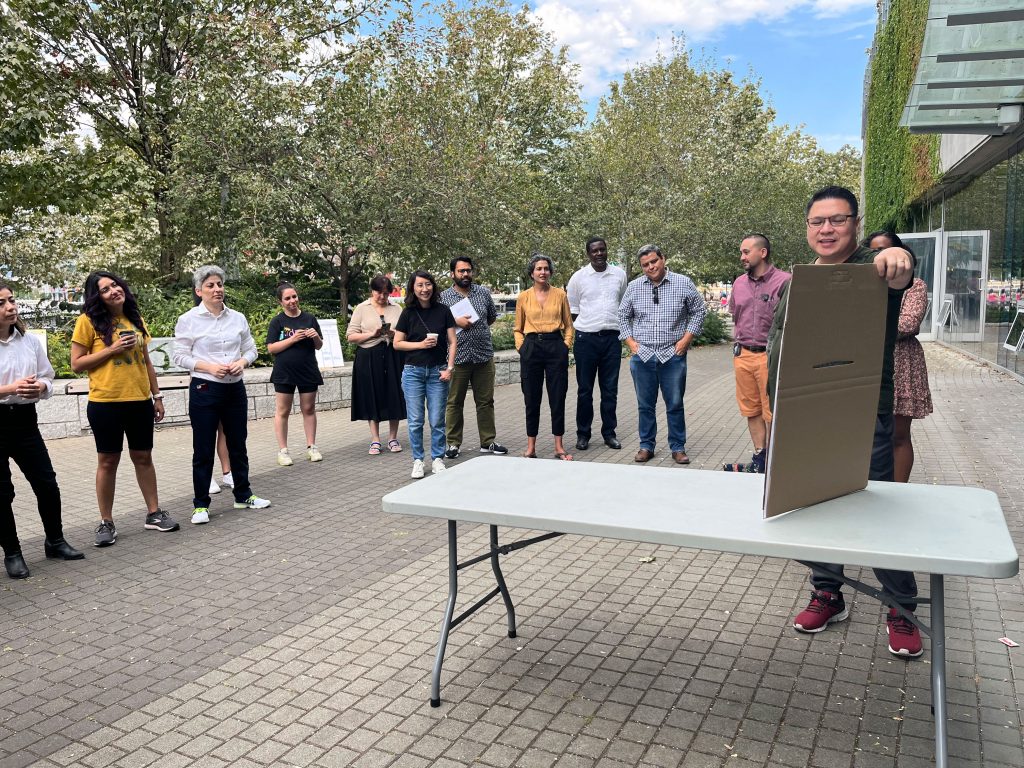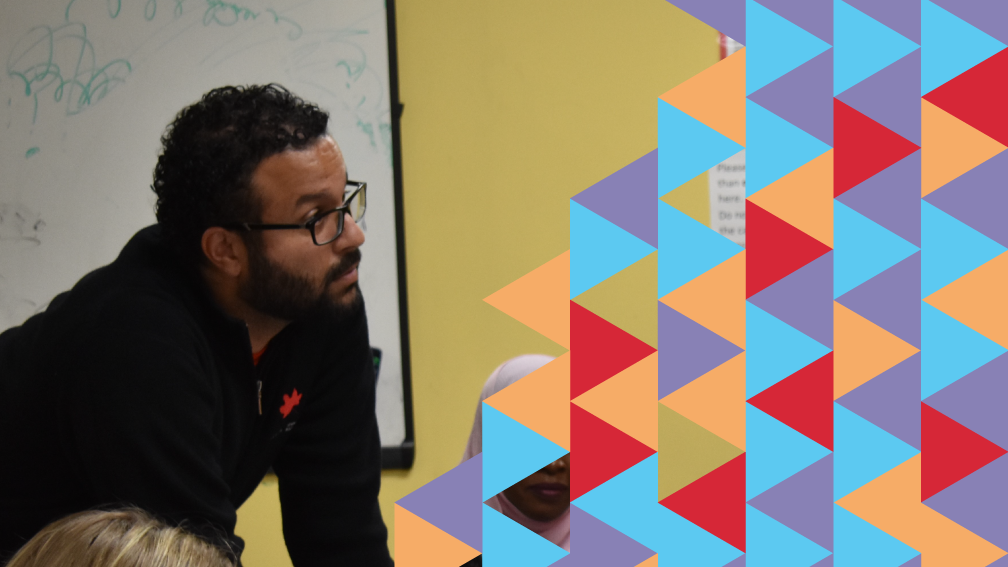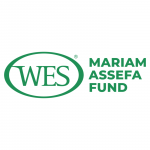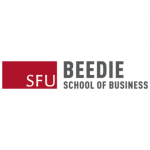The Refugee Livelihood Lab is a social innovation lab housed within RADIUS at the Beedie School of Business at Simon Fraser University.
Our vision is a world where systems enable, rather than limit, the dreams and potentials of displaced and migrant peoples.
Our mission is to facilitate systems change toward migrant justice. We do this by building power with communities through leadership development, convening, and advocacy.
Our principles include centring the leadership of impacted communities; addressing power skillfully; building transformational relationships; growing awareness of Canada’s role in displacement globally, as well as the link between Indigenous sovereignty here and abroad; designing practical initiatives that create the conditions for equity; and co-creating liberating new narratives that challenge social and economic myths about displaced and migrant peoples.
Our goals include enhancing the networks, influence, and transformational leadership capacity of migrant communities; increasing impacted communities’ access to dignified pathways to social and economic capital; and building alignment within the refugee and immigrant services sector toward greater equity.
Our central program, formerly called Beyond Borders, is now a non-credit certificate course called the Migrant Systems Change Leadership Program offered through SFU, Beedie School of Business.
Our advocacy contributions have included support and leadership with the Canadian Experience Barrier Policy Project, the Trained to Save Lives Initiative, and the Refugee Claimant Tuition Project, among others.
